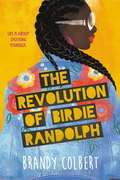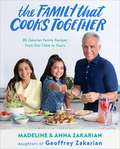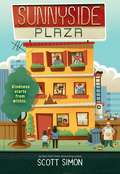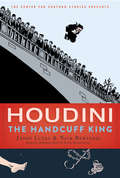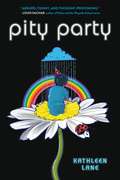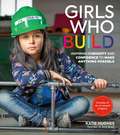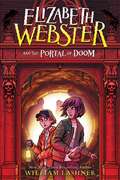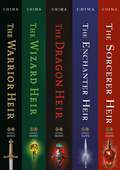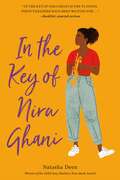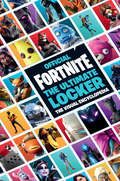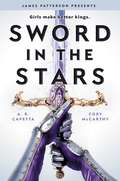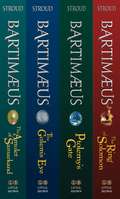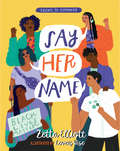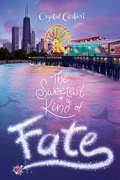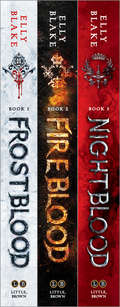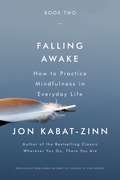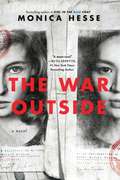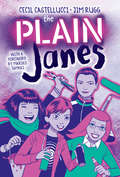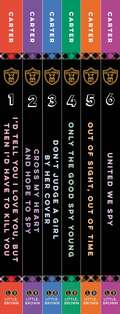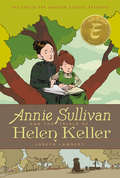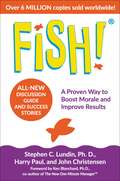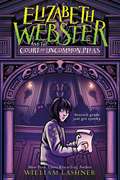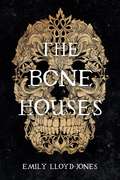- Table View
- List View
The Revolution of Birdie Randolph
by Brandy Colbert<P><P>Perfect for fans of Nina LaCour and Nicola Yoon comes a novel about first love and secrets from Stonewall Book Award winner Brandy Colbert. <P><P> Dove "Birdie" Randolph works hard to be the perfect daughter and follow the path her parents have laid out for her: She quit playing her beloved soccer, she keeps her nose buried in textbooks, and she's on track to finish high school at the top of her class. <P><P> But then Birdie falls hard for Booker, a sweet boy with a troubled past...whom she knows her parents will never approve of. <P><P>When her estranged aunt Carlene returns to Chicago and moves into the family's apartment above their hair salon, Birdie notices the tension building at home. Carlene is sweet, friendly, and open-minded--she's also spent decades in and out of treatment facilities for addiction. <P><P>As Birdie becomes closer to both Booker and Carlene, she yearns to spread her wings. But when long-buried secrets rise to the surface, everything she's known to be true is turned upside down.
The Family That Cooks Together: 85 Zakarian Family Recipes from Our Table to Yours
by Anna Zakarian Madeline ZakarianCreate joy in the kitchen and at the family table with this great cooking guide for kids from Anna and Madeline, daughters of Chopped's Geoffrey Zakarian and terrific cooks in their own right! You don't have to be a foodie to love good food, and you definitely don't need to be an adult to make great meals! Anna and Madeline Zakarian have grown up in busy kitchens, and by now they know what's pretty tasty . . . and what's totally delectable! In their cookbook for kids, Anna and Madeline present flavorful, easy-to-make meals and snacks for cooks of all abilities. Everything from savory breakfasts to scrumptious desserts -- and all the nibbles in between -- are included, along with simple instructions, limited ingredients, and handy tips and tricks for budding chefs. Mouthwatering photographs of every recipe show you how each dish will turn out, as well as snapshots of the girls' fun -- and food-filled days with their family!
Sunnyside Plaza
by Scott Simon<P><P>Wonder meets Three Times Lucky in a story of empowerment as a young woman decides to help solve the mystery of multiple suspicious deaths in her group home. Sally Miyake can't read, but she learns lots of things. Like bricks are made of clay and Vitamin D comes from the sun. Sally is happy working in the kitchen at Sunnyside Plaza, the community center she lives in with other adults with developmental disabilities. <P><P>For Sally and her friends, Sunnyside is the only home they've ever known. <P><P>Everything changes the day a resident unexpectedly dies. After a series of tragic events, detectives Esther Rivas and Lon Bridges begin asking questions. Are the incidents accidents? Or is something more disturbing happening? The suspicious deaths spur the residents into taking the investigation into their own hands. But are people willing to listen? <P><P>Sunnyside Plaza is a human story of empowerment, empathy, hope, and generosity that shines a light on this very special world.
Houdini: The Handcuff King (The Center for Cartoon Studies Presents)
by Jason Lutes"I have escaped out of more handcuffs, manacles, and leg shackles than any other human being living."Harry Houdini mesmerized a generation of Americans when he was alive, and continues to do so over ninety years since his death. This is a snapshot of Houdini's life, centering on one of his most famous feats. As Houdini prepares for a death-defying leap into the icy Charles River in Boston, biographer Jason Lutes and artist Nick Bertozzi reveal Houdini's life and influence: from the anti-Semitism Houdini fought all his life, to the adulation of the American public; from his hounding by the press, to his loving relationship with his wife Bess; from his egoism to his insecurity; from his public persona--to the secret behind his most amazing trick! And it's all in graphic form, so it's fresh, original, and unlike anything previously published about this most fascinating of American showmen.
Pity Party
by Kathleen LaneDiscover an "absurd, funny, and thought-provoking" book perfect for "anyone who has ever felt socially awkward or inadequate" (Louis Sachar, author of Holes and the Wayside School series).Dear weird toes, crooked nose, stressed out, left out, freaked outDear missing parts, broken hearts, picked-on, passed up, misunderstood, Dear everyone, you are cordially invited, come as you are, this party's for youWelcome to Pity Party, where the social anxieties that plague us all are twisted into funny, deeply resonant, and ultimately reassuring psychological thrills.There's a story about a mood ring that tells the absolute truth. One about social media followers who literally follow you around. And one about a kid whose wish for a new, improved self is answered when a mysterious box arrives in the mail. There's also a personality test, a fortune teller, a letter from the Department of Insecurity, and an interactive Choose Your Own Catastrophe.Come to the party for a grab bag of delightfully dark stories that ultimately offers a life-affirming reminder that there is hope and humor to be found amid our misery.
Girls Who Build: Inspiring Curiosity and Confidence to Make Anything Possible
by Katie HughesCelebrate the can-do attitude of fierce girls who know how to wield a hammer, fire up a saw, and build everything from a bookshelf to a playhouse. Featuring project photographs, this guide will inspire you to pick up your power tools and make something great.Carpenter Katie Hughes frequently found that she was the only woman on construction worksites. To change that, she began teaching classes to girls ages 8-14, showing them how to drill, saw, and weld. Her classes quickly became sold out summer camps and she founded her own non-profit, Girls Build.Girls Who Build features candid and arresting photographs of forty-five girls showing off their power tools and can-do attitudes. Accompanying each girl is a profile interview where she speaks to her inspirations and favorite builds, plus tips for others starting out. Also included are building skills, techniques, and safety tips to teach girls -- and older beginners -- how to handle hammers, drills, and saws plus thirteen do-it-herself building projects (from the featured girls themselves) such as picture frames, nightstands, playhouses, and more.
Elizabeth Webster and the Portal of Doom (Elizabeth Webster #2)
by William LashnerIn this spine-tingling sequel to Elizabeth Webster and the Court of Uncommon Pleas, young Elizabeth has a client and case of her very own, but things quickly become bloodstains-on-the-courtroom-floor messy.After her grand success in the courtroom against the demon Redwing, Elizabeth thought life would get much easier. But balancing homework with defending the undead is tricky. And lately, it's been tough convincing her father that she's ready to do more than sweep the floors of the family firm. When a wailing banshee mother begs for her help in saving her son, Elizabeth jumps at the case. Free the boy named Keir McGoogan, then reunite him with his mother at the Portal of Doom -- piece of cake. But there's a catch. While Keir waits for his trial, Elizabeth must shepherd him through the horrifying halls of middle school! And soon she realizes that Keir's fate is tied to a terrifying pact made on a dark, stormy night a century ago. Behind his smart mouth and his 12-year-old appearance, Keir's hiding a secret big enough to sink your teeth into. Will Elizabeth and her friends be able to protect Keir? Or, are they the ones who need protecting? Packed with thrills, chills, laughter, and a gremlin, this second adventure will have Elizabeth's fans hiding under their covers as they read through the night.
Don't Date Rosa Santos
by Nina MorenoFor fans of GILMORE GIRLS and TO ALL THE BOYS I'VE LOVED BEFORE, this effervescent love story from debut author Nina Moreno will sweep you away.Rosa Santos is cursed by the sea-at least, that's what they say. Dating her is bad news, especially if you're a boy with a boat.But Rosa feels more caught than cursed. Caught between cultures and choices. Between her abuela, a beloved healer and pillar of their community, and her mother, an artist who crashes in and out of her life like a hurricane. Between Port Coral, the quirky South Florida town they call home, and Cuba, the island her abuela refuses to talk about.As her college decision looms, Rosa collides-literally-with Alex Aquino, the mysterious boy with tattoos of the ocean whose family owns the marina. With her heart, her family, and her future on the line, can Rosa break a curse and find her place beyond the horizon?
Heir Chronicles: Books I-V (The Heir Chronicles)
by Cinda Williams ChimaRead the complete Heir Chronicles in this omnibus edition!Three boys, three talismans, one destiny. In this page-turning collection featuring The Warrior Heir, The Wizard Heir, The Dragon Heir, The Enchanter Heir, and The Sorcerer Heir, Cinda Williams Chima explores what it means to be different, what's worth fighting for, and what's worth dying for.... Dark forces are after a boy who is heir to a dangerous legacy. A girl grapples with evil within. A seventeen-year-old is a deadly assassin, and a wild child uncovers a mystery. The Wizards and Warriors, Seers, Enchanters, and Sorcerers must keep their fragile peace despite all that would break it. The answers they need lie buried in the tragedies of the past -- the question is whether they can survive long enough to unearth them.
In the Key of Nira Ghani
by Natasha DeenNira Ghani has always dreamed of becoming a musician. Her Guyanese parents, however, have big plans for her to become a scientist or doctor. Nira's grandmother and her best friend, Emily, are the only people who seem to truly understand her desire to establish an identity outside of the one imposed on Nira by her parents. When auditions for jazz band are announced, Nira realizes it's now or never to convince her parents that she deserves a chance to pursue her passion. <p><p> As if fighting with her parents weren't bad enough, Nira finds herself navigating a new friendship dynamic when her crush, Noah, and notorious mean-girl, McKenzie "Mac," take a sudden interest in her and Emily, inserting themselves into the fold. So, too, does Nira's much cooler (and very competitive) cousin Farah. Is she trying to wiggle her way into the new group to get closer to Noah? Is McKenzie trying to steal Emily's attention away from her? As Farah and Noah grow closer and Emily begins to pull away, Nira's trusted trumpet "George" remains her constant, offering her an escape from family and school drama. <p> But it isn't until Nira takes a step back that she realizes she's not the only one struggling to find her place in the world. As painful truths about her family are revealed, Nira learns to accept people for who they are and to open herself in ways she never thought possible. <p> A relatable and timely contemporary, coming-of age story, In the Key of Nira Ghani explores the social and cultural struggles of a teen in an immigrant household.
FORTNITE: The Visual Encyclopedia (Official Fortnite Books)
by Epic GamesThis is the essential resource Fortnite fans have been waiting for--the definitive guide to Fortnite Chapter One, featuring the authentic Fortnite holographic seal.The Ultimate Locker features all your favorite Outfits, pets, back bling, harvesting tools, gliders, contrails, and emotes from Seasons 1 to X, jam-packed into a single book and brought to you exclusively by Epic Games. Arranged season by season and including rarity values, set information, and fun facts throughout, this is a must-have reference for all Fortnite fans.
Sword in the Stars: A Once & Future Novel (Once & Future #2)
by Cory McCarthy A. R. CapettaIn this epic sequel to Once & Future, Ari and her Rainbow knights must pull off a Holy Grail heist thousands of years in the past -- without destroying their own destinies.Ari Helix may have won her battle against the tyrannical Mercer corporation, but the larger war has just begun. Ari and her cursed wizard Merlin must travel back in time to the unenlightened Middle Ages and steal the King Arthur's Grail -- the very definition of impossible. It's imperative that the time travelers not skew the timeline and alter the course of history. Coming face to face with the original Arthurian legend could produce a ripple effect that changes everything. Somehow Merlin forgot that the past can be even more dangerous than the future . . .
The Bartimaeus Sequence Gift Set (A Bartimaeus Novel)
by Jonathan StroudFall into New York Times bestselling author Jonathan Stroud's Bartimaeus Sequence in this complete e-book edition that includes: The Amulet of Samarkland, The Golem's Eye, Ptolemy's Gate, and The Ring of Solomon.Nathaniel is a young magician's apprentice, taking his first lessons in the arts of magic. But after a devious hotshot wizard named Simon Lovelace ruthlessly humiliates him in front of everyone he knows, Nathaniel seeks his revenge through magic. He pores over texts and works to perfect his skills to summon the 5,000 year old djinni Bartimaeus-but Nathaniel may have bitten off more than he can chew, and soon finds himself in a situation more dangerous and deadly than he could have ever imagined. These four spellbinding tales -- The Amulet of Samarkland, The Golem's Eye, Ptolemy's Gate, and The Ring of Solomon -- invite readers into a brilliantly imagined world that they'll never want to leave.
Say Her Name
by Zetta ElliottInspired by the #SayHerName campaign launched by the African American Policy Forum, these poems pay tribute to victims of police brutality as well as the activists insisting that Black Lives Matter. Elliott engages poets from the past two centuries to create a chorus of voices celebrating the creativity, resilience, and courage of Black women and girls.This collection features forty-nine powerful poems, four of which are tribute poems inspired by the works of Lucille Clifton, Audre Lorde, Nikki Giovanni, and Phillis Wheatley. This provocative collection will move every reader to reflect, respond-and act.
The Sweetest Kind of Fate (Windy City Magic #2)
by Crystal CestariGREAT. I've somehow found myself tangled up with a siren, a mermaid, and a homicidal wicked witch who once tried to strangle me to death. Way to go, Amber!Amber Sand, legendary matchmaker, couldn't be more surprised when her archnemesis, Ivy, asks for her help. Ivy's sister, Iris, is getting married, and Ivy wants to prove her sister is making a huge mistake. But as Amber looks into Iris's eyes, there doesn't seem to be a problem-Iris has clearly found her match.It seems happily-ever-after is in the cards, but when Iris seeks out a dangerous, life-altering spell, it's up to Amber and Ivy to set aside their rivalry and save the day.As Iris puts everything on the line for love, Amber continues to wrestle with her own romantic future. Her boyfriend, Charlie, is still destined for another, and no matter how hard she clings to him, fear over their inevitable breakup shakes her belief system to the core.Because the Fates are never wrong-right?
The Frostblood Saga Omnibus (The Frostblood Saga)
by Elly BlakeThis digital edition of Elly Blake's New York Times bestselling Frostblood Saga includes Frostblood, Fireblood, and Nightblood.Seventeen-year-old Ruby is a Fireblood who has concealed her powers of heat and flame from the cruel Frostblood ruling class her entire life. But when her mother is killed trying to protect her, and rebel Frostbloods demand her help to overthrow their bloodthirsty king, she agrees to come out of hiding, desperate to have her revenge.Despite her unpredictable abilities, Ruby trains with the rebels and the infuriating -- yet irresistible -- Arcus, who seems to think of her as nothing more than a weapon. But before they can take action, Ruby is captured and forced to compete in the king's tournaments that pit Fireblood prisoners against Frostblood champions. Now she has only one chance to destroy the maniacal ruler who has taken everything from her -- and from the icy young man she has come to love.Beautifully written with an unforgettable cast of characters, The Frostblood Saga is an unputdownable fantasy series for fans of the Shadow and Bone trilogy and Red Queen.
Falling Awake: How to Practice Mindfulness in Everyday Life
by Jon Kabat-ZinnThink you have no time for mindfulness? Think again. "Thoughtful and provocative.... The relevance of this work is unquestionable, as it leaves us inspired and optimistic that true healing really is possible" (Sharon Salzberg). For four decades, Jon Kabat-Zinn has been teaching the tangible benefits of meditation in the mainstream. Today millions of people have taken up a formal mindfulness meditation practice as part of their everyday lives. But how do you actually go about meditating? What does a formal meditation practice look like? And how can we overcome some of the common obstacles to incorporating meditation into daily life in an age of perpetual self-distraction? Falling Awake directly answers these urgent and timely questions. Originally published in 2005 as part of a larger book titled Coming to Our Senses, it has been updated with a new foreword by the author and is even more relevant today. Science shows that the tangible benefits of a mindfulness meditation practice are impossible to ignore. Kabat-Zinn explains how to incorporate them into our hectic, modern lives. Read on for a master class from one of the pioneers of the worldwide mindfulness movement.
The War Outside
by Monica HesseA stunning novel of conviction, friendship, and betrayal from Monica Hesse, the Edgar Award-winning and bestselling author of Girl in the Blue CoatIt's 1944, and World War II is raging across Europe and the Pacific. <p><p> The war seemed far away from Margot in Iowa and Haruko in Colorado--until they were uprooted to dusty Texas, all because of the places their parents once called home: Germany and Japan. <p><p>Haruko and Margot meet at the high school in Crystal City, a "family internment camp" for those accused of colluding with the enemy. The teens discover that they are polar opposites in so many ways, except for one that seems to override all the others: the camp is changing them, day by day and piece by piece. Haruko finds herself consumed by fear for her soldier brother and distrust of her father, who she knows is keeping something from her. And Margot is doing everything she can to keep her family whole as her mother's health deteriorates and her rational, patriotic father becomes a man who distrusts America and fraternizes with Nazis.With everything around them falling apart, Margot and Haruko find solace in their growing, secret friendship. But in a prison the government has deemed full of spies, can they trust anyone--even each other?
The PLAIN Janes
by Cecil CastellucciMeet the Plain Janes--artist activists on a mission to wake up their sleepy suburban town. This cult classic graphic novel is perfect for fans of The LumberJanes and Awkward.When artsy misfit Jane Beckles is forced to leave her beloved city life behind for the boring suburb of Kent Waters, she thinks her life is over. But then she finds where she belongs: at the reject table in the cafeteria, along with fellow misfits Brain Jayne, Theater Jane, and sporty Polly Jane. United by only two things-a shared name and frustration with the adults around them--the girls form a secret club dedicated to fighting suburban apathy with guerrilla works of art scattered around their small town. But for Main Jane, the group is more than simple teenaged rebellion; it's an act of survival. She's determined not to let fear rule her life like it does her parents' and neighbors' lives. Armed with her sketchbook and a mission of resistance, the PLAIN Janes are out to prove that passion, bravery, and a group of great friends can save anyone from the hell that is high school.With each installment printed in its own distinct color, this volume includes the original two stories--The Plain Janes and Janes in Love--plus a never-before-seen third story, Janes Attack Back. The Janes are back, and better than ever.
Gallagher Girls Digital Omnibus
by Ally CarterDon't miss a single moment of the beloved, bestselling Gallagher Girls series in this ebook collection, where spies-in-training navigate secret missions, friendship, betrayals, and first love.Cammie Morgan is a student at the Gallagher Academy for Exceptional Young Women, a fairly typical all-girls school -- that is, if every school taught advanced martial arts in PE and the latest in chemical warfare in science, and students received extra credit for breaking CIA codes in computer class. The Gallagher Academy might claim to be a school for geniuses but it's really a school for spies.Even though Cammie is fluent in fourteen languages and capable of killing a man in seven different ways, she has no idea what to do when she meets an ordinary boy who thinks she's an ordinary girl. Sure, she can tap his phone, hack into his computer, or track him through town with the skill of a real "pavement artist" -- but can she maneuver a relationship with someone who can never know the truth about her?Cammie Morgan may be an elite spy-in-training, but she's on her most dangerous mission yet -- falling in love.This ebook collection includes all six Gallagher Girls books: I'd Tell You I Love You, But Then I'd Have to Kill You, Cross My Heart and Hope to Spy, Don't Judge a Girl by Her Cover, Only the Good Spy Young, Out of Sight, Out of Time, and United We Spy.
Annie Sullivan and the Trials of Helen Keller (The Center for Cartoon Studies Presents)
by Joseph LambertHelen Keller lost her ability to see and hear before she turned two years old. But in her lifetime, she learned to ride horseback and dance the foxtrot. She graduated from Radcliffe. She became a world famous speaker and author. She befriended Mark Twain, Charlie Chaplin, and Alexander Graham Bell. And above all, she revolutionized public perception and treatment of the blind and the deaf. The catalyst for this remarkable life's journey was Annie Sullivan, a young woman who was herself visually impaired. Hired as a tutor when Helen was six years old, Annie broke down the barriers between Helen and the wider world, becoming a fiercely devoted friend and lifelong companion in the process. In Annie Sullivan and the Trials of Helen Keller, author and illustrator Joseph Lambert examines the powerful bond between teacher and pupil, forged through the intense frustrations and revelations of Helen's early education. The result is an inspiring, emotional, and wholly original take on the story of these two great Americans.
Fish!: A Proven Way to Boost Morale and Improve Results
by Stephen C. Lundin Harry Paul John Christensen Ken BlanchardThe powerful parable that has helped millions to see their lives and work in a new way -- now revised and updated to celebrate 20 years of working with greater purpose!It's a rainy day in Seattle, and on the third floor of First Guarantee Financial, people have stopped believing they can make a difference. To new manager Mary Jane Ramirez, the challenge of bringing life back to her unenthusiastic and unmotivated team seems impossible -- until she discovers an incredibly successful workplace down the street, where the employees are so alive and passionate that people stop just to watch them work!FISH! is the remarkable story of what happens when Mary Jane seeks the help of these unlikely business "experts" and learns their secret: four simple practices that, when applied daily, help anyone to be more energized, effective, and fulfilled. Filled with inspiration and timeless wisdom that will resonate with anyone in any field or career level, FISH! is one of the most popular business parables of all time. People in organizations around the world use its practical lessons to improve customer service, build trust and teamwork, bolster leadership, and increase employee satisfaction. They also use the lessons to strengthen personal relationships, and to live with greater purpose and happiness. FISH! will help you discover the amazing power that is already inside you to make a positive difference -- wherever you are in life.
Elizabeth Webster and the Court of Uncommon Pleas (Elizabeth Webster Ser. #1)
by William Lashnerp.p1 {margin: 0.0px 0.0px 0.0px 0.0px; line-height: 18.0px; font: 11.0px Helvetica; color: #2c2c2c}p.p2 {margin: 0.0px 0.0px 0.0px 0.0px; line-height: 18.0px; font: 11.0px Helvetica; min-height: 13.0px}Welcome to Elizabeth Webster's world, where the common laws of middle school torment her days . . . and the uncommon laws of an even weirder realm govern her nights. Elizabeth Webster is happy to stay under the radar (and under her bangs) until middle school is dead and gone. But when star swimmer Henry Harrison asks Elizabeth to tutor him in math, it's not linear equations Henry really needs help with-it's a flower-scented, poodle-skirt-wearing, head-tossing ghost who's calling out Elizabeth's name. But why Elizabeth? Could it have something to do with her missing lawyer father? Maybe. Probably. If only she could find him. In her search, Elizabeth discovers more than she is looking for: a grandfather she never knew, a startling legacy, and the secret family law firm, Webster & Son, Attorneys for the Damned.Elizabeth and her friends soon land in court, where demons and ghosts take the witness stand and a red-eyed judge with a ratty white wig hands out sentences like sandwiches. Will Elizabeth's father arrive in time to save Henry Harrison-and is Henry the one who really needs saving?Set in the historic streets of Philadelphia, this riveting middle-grade mystery from New York Times best-selling author William Lashner will have readers banging their gavels and calling for more from the incomparable Elizabeth Webster.
Cook with Amber: Fun, Fresh Recipes to Get You in the Kitchen
by Jamie Oliver Amber Kelley"Amber's beautiful book is bursting with great ideas that make healthy eating a joy-and she's done a great job covering all the bases that, in my experience, teens and kids really want." -Jamie OliverFifteen-year-old Amber Kelley is inspiring a whole new generation of eaters to get in the kitchen and have fun. She is the first winner of Food Network Star Kids, a member of celebrity chef Jamie Oliver's Food Tube family, and the host of her own web series on Foodnetwork.com and YouTube. Her work has been recognized by First Lady Michelle Obama, and Amber has been featured on national TV networks such as the Disney Channel, E!, and NBC's Today.Now, Amber's 80 most popular and delicious recipes have been hand-picked for her cookbook to empower teens to get in the kitchen. From nourishing breakfasts to start the day right, to school lunches to impress your friends, party ideas for every occasion, and even recipes for the best homemade facial scrubs to fight that dreaded teen acne, Amber shares her secrets for using the power of food to get the best out of her teen years. Includes 45 full-color photographs throughout.
The Bone Houses
by Emily Lloyd-JonesBuffy the Vampire Slayer meets Sky in the Deep in this bewitching, historical horror novel, perfect for fans of Holly Black and V.E. Schwab. Seventeen-year-old Aderyn ("Ryn") only cares about two things: her family and her family's graveyard. And right now, both are in dire straits. Since the death of their parents, Ryn and her siblings have been scraping together a meager existence as gravediggers in the remote village of Colbren, which sits at the foot of a harsh and deadly mountain range that was once home to the fae. The problem with being a gravedigger in Colbren, though, is that the dead don't always stay dead.The risen corpses are known as "bone houses," and legend says that they're the result of a decades-old curse. When Ellis, an apprentice mapmaker with a mysterious past, arrives in town, the bone houses attack with new ferocity. What is it that draws them near? And more importantly, how can they be stopped for good?Together, Ellis and Ryn embark on a journey that will take them into the heart of the mountains, where they will have to face both the curse and the deeply-buried truths about themselves. Equal parts classic horror novel and original fairytale, The Bone Houses will have you spellbound from the very first page.
